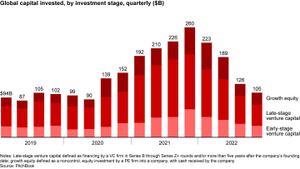President-elect Donald Trump has stirred up significant discussion with his latest cabinet appointments, which include billionaire Elon Musk and biotech entrepreneur Vivek Ramaswamy, heading the new Department of Government Efficiency. This innovative yet controversial move aims at dismantling what Trump perceives as burdensome bureaucracy and excessive federal regulations.
The announcement, made on the campaign trail, has set the tone for Trump's second presidential term and is characterized by his promise to slash $2 trillion from federal budgets—nearly double the amount of the entire discretionary federal budget. Critics, including ethics experts and consumer advocacy groups, raise alarm over the potential conflicts of interest from having individuals with deep financial ties to industries facing government regulations take on such powerful roles.
Musk's involvement is particularly contentious, as he is not only one of Trump's vocal supporters but also runs multiple companies under scrutiny from several federal agencies. His enterprises, such as Tesla and SpaceX, could benefit immensely from any regulatory rollbacks under the new department's agenda. "Musk knows nothing about government efficiency and regulation; his own businesses regularly violate the very rules he is set to dismantle," said Lisa Gilbert, co-president of consumer rights organization Public Citizen.
Within this newly formed department, the duo aims to reshape governmental operations significantly. They plan to identify and eliminate perceived 'wasteful expenditures' and streamline federal agencies, which supporters are framing as necessary reforms. Musk has assured the public of his department's "maximum transparency," promising to publicly post all actions online. Yet skeptics question whether this promise will result in real accountability or merely serve as a public relations facade. Ralph Nader, renowned consumer advocate, warns, "Get ready for chaos and rampant abuses of power, with Musk at the helm."
The Department of Government Efficiency aims to operate independently of congressional oversight, which many view as troubling. By bypassing traditional governmental frameworks, this approach could lead to significant reductions in funding and protections for various federal agencies, including the Environmental Protection Agency and the Occupational Safety and Health Administration. This arrangement raises questions about how such cuts will affect public health and environmental regulations, which are already under attack from elements within corporate America.
After the announcement, experts from various sectors are weighing in. Many argue this shift signals not only the elevation of corporate influence within government but also poses existential risks to worker safety, environmental standards, and public welfare. They assert, "Regulations protect vulnerable populations from corporate negligence; rolling them back prioritizes profit over people." Critics are concerned about the precedents being set with major corporate players like Musk and Ramaswamy steering policy decisions.
Alongside their agenda to reduce spending, the new department’s focus includes eliminating regulations deemed as “smothering.” During events, Musk has been quoted as saying, “Your money is being wasted, and we’re going to fix it.” This rhetoric, alongside campaign promises from Trump emphasizing deregulation, has paved the way for what many see as the new administration's overarching theme: corporate capture of public policy.
Trump’s appointments reflect his strategy of surrounding himself with high-profile business leaders who share his disdain for the existing regulatory frameworks. A recent analysis of his cabinet selections indicated this trend, which prioritizes corporate interests over public service, challenging longstanding democratic principles. Civil society advocates have since expressed growing concern over the direction of U.S. governance, urging Congress to push back against the complete takeover of regulatory agencies by corporate interests.
All eyes will be on the new department as Musk and Ramaswamy prepare to take on their roles, with many anticipating the impact on federal agencies and the broader regulatory environment. The coming months are likely to reveal the full extent of their influence on the direction of U.S. policy at one of the most consequential times for public health, labor rights, and environmental protections.
While Trump enthusiastically frames the creation of the Department of Government Efficiency as groundbreaking reform, experts stress the importance of checking corporate power to safeguard democratic governance. The balance of power between public benefit and corporate gain hangs heavily on the decisions made within this new chapter of the Trump administration. Stakeholders from various sectors continue to voice their concerns, stating, "We must protect our air, water, and public health from corporate greed, especially when those making decisions stand to benefit directly from their regulations. Doing so is not just good policy—it's the very foundation of democracy."



